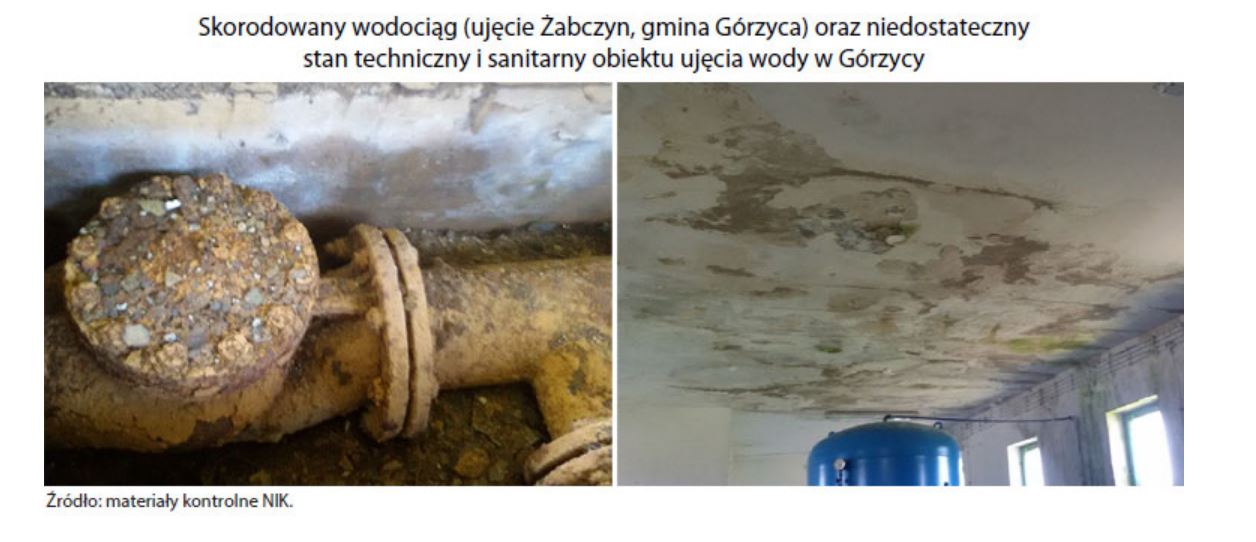Sampling by the Supreme Audit Office (NIK) of companies supplying water to Polish homes showed that over a third of water – and in some cases up to 60% – was wasted due to the poor state of the infrastructure and lack of money for carrying out everyday activities.
NIK also found water quality problems in 80% of the facilities, with the water being undrinkable for up to several months in some cases.
Liczne awarie sieci wodociągowej, ogromne straty wody i problemy z jej jakością – to konsekwencje braku pieniędzy, słabego przygotowania i deficytu pracowników w skontrolowanych przedsiębiorstwach wodociągowych w gminach wiejskich: https://t.co/rQlPJr1RwS pic.twitter.com/ECyo5tpgHv
— Najwyższa Izba Kontroli (NIK) (@NIKgovPL) August 11, 2022
The state auditor examined 20 of the 2,800 companies supplying water to Polish homes, looking at rural areas in five provinces: Kuyavian-Pomeranian, Lubusz, Masovian, Opole and Pomeranian.
Its publication of the results comes during a summer when many parts of the country have been classified as at risk of a drought and water levels in rivers have dropped near historical lows. Some municipalities, including Warsaw, are calling for the public to limit water conservation while others are restricting supplies.
“Poland is classified as a water-scarce country,” notes NIK in its the report. According to the UN, an annual water resource of less than 1,700 m³ per capita results in what is known as water stress, a situation in which there is not enough water to meet human and environmental needs or the water is undrinkable.
In Poland, renewable water resources per capita have fallen from 1,800 m³ per capita in 1972 to 1,600 m³ in 2017. Within the European Union, only the Czech Republic, Cyprus and Malta are worse off in this respect, says NIK.
Despite this, NIK found that in more than half of the companies audited, water losses exceeded 30% of the treated water. In almost half, more water was wasted than was injected into the network. And in six of the 20 companies, as much as 60% of the water produced was wasted.
According to the auditor, one of the reasons for the huge losses of water was the high failure rate of the water supply network. In the three years of the audit alone, around 1,800 failures were recorded in the 20 companies.
Most of the grids were between 20 and 60 years old. In almost half of the companies, their employees could not say how old the water mains were. In more than half of the cases, no one knew what materials they were made of.
“Water supply network failures were mainly caused by their poor technical condition, the wear and tear and the age of the water supply network, as well as damage during works,” said NIK.

Corroded water pipe and inadequate technical and sanitary condition of the water inlet facility (source: NIK report)
The NIK audit found that as many as 65% of the companies surveyed did not have the money to rebuild their networks, which could have reduced the number of failures. There was also no money for periodic inspections of pipelines – as many as 75% of the companies had not commissioned it.
“Unjustified water losses are not only a waste of scarce resources,” the report reads. “They also need to be considered from an economic perspective, especially in the context of the lack of financial resources required by the audited entities indicated for proper implementation of tasks.”
NIK estimated that 5.3 million cubic metres was lost at the sampled facilities over three years, at a value in financial terms of over 21 million zloty (€4.5 million).
"Bez sensu kupujecie wodę w plastikowych butelkach, a ta z wodociągów jest taka sama albo lepsza"
Woda z wodociągu u mnie na wsi: pic.twitter.com/FrJyUjcyq3— M. A. Gister (@M_A_Gister) August 8, 2022
The NIK auditors also examined the state of the water itself. Water quality problems occurred in 80% of units. In extreme cases, water was unfit for consumption for several hundred days and conditionally fit, for example after boiling, for up to eight years.
Old and neglected water supply networks were named as the cause of the poor water quality. The auditor pointed out, among others, corroded and moss-covered wells, damp patches and cracks on the walls or a broken ventilation grille on the ceiling.
Main photo credit: Luis Quintero / Pexels

Alicja Ptak is deputy editor-in-chief of Notes from Poland and a multimedia journalist. She has written for Clean Energy Wire and The Times, and she hosts her own podcast, The Warsaw Wire, on Poland’s economy and energy sector. She previously worked for Reuters.




















